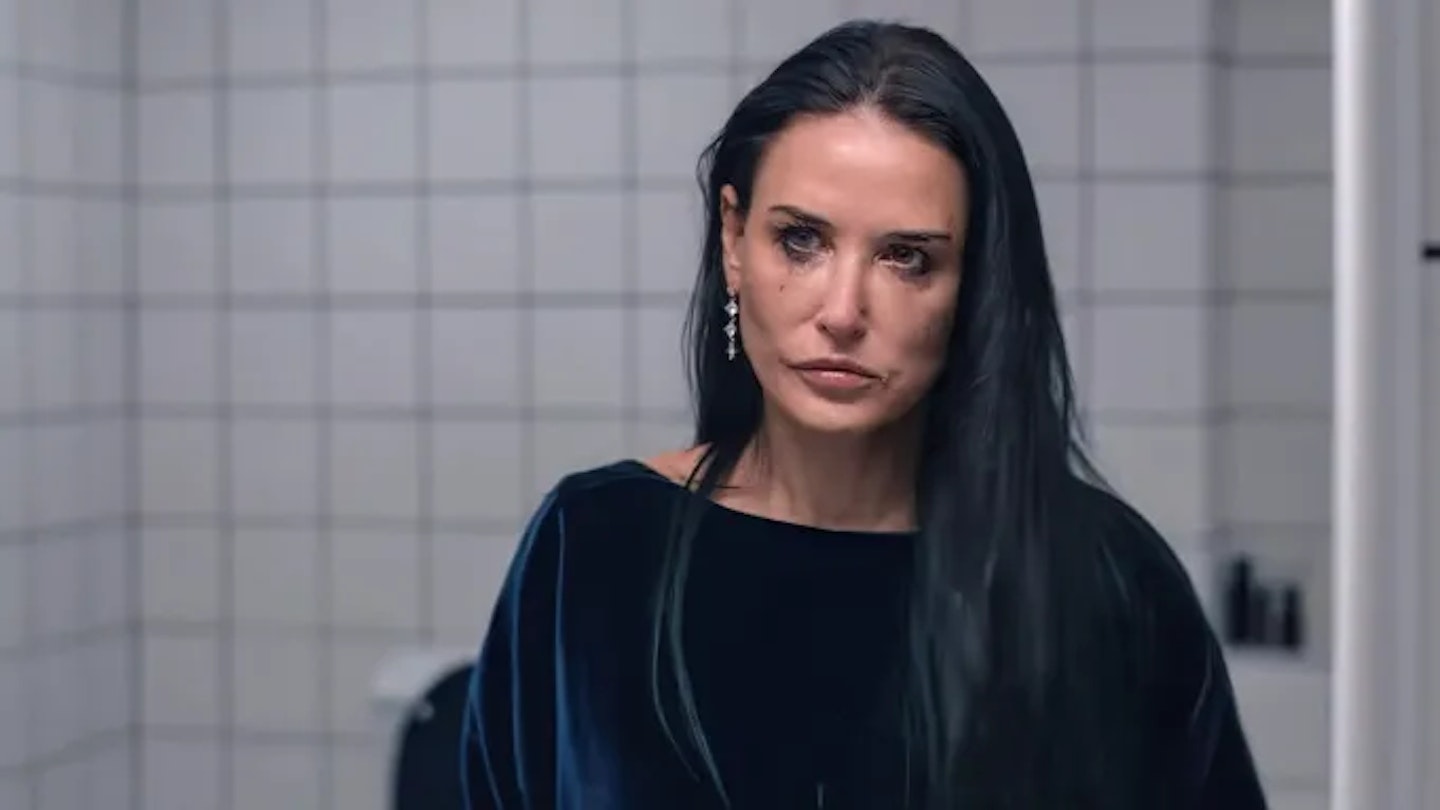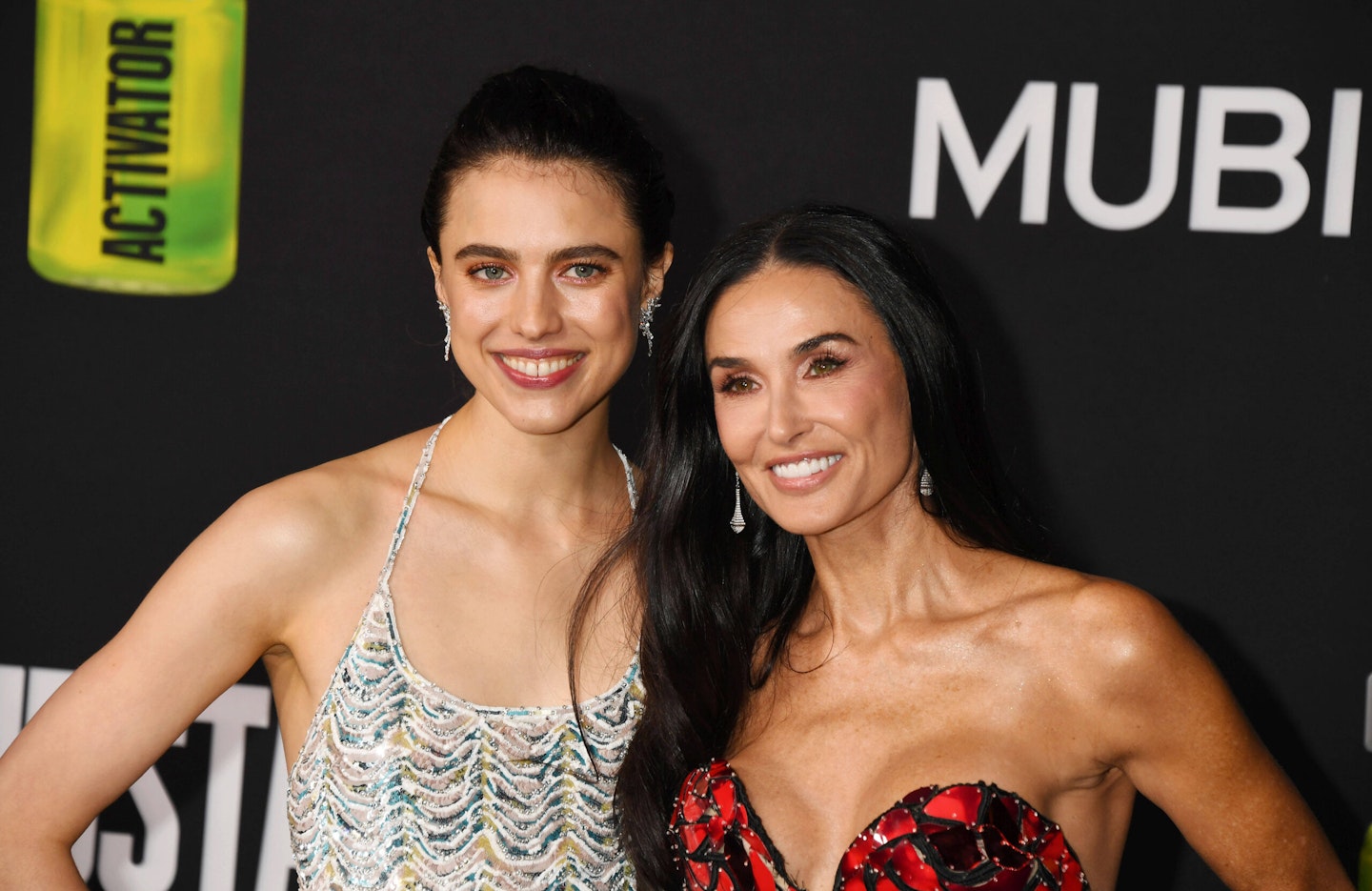Contains spoilers
Women, especially those in Hollywood and the public eye, are expected to defy the natural and inevitable process of ageing. Our skin is supposed to remain baby smooth, glistening, and tight. Our boobs and bums so high they could give Snoop Dogg a run for his money. Grey hair, wrinkles, and life-stained teeth are all unimaginable...
Men are not immune to this pressure, but they are permitted to play by different rules; they can become ‘silver foxes’, their wrinkles add character and, of course, if they have a lot of money and/or power, anything goes when it comes to looks.
Money and power do not afford women this same pass. If anything, the more successful we get, the more we are expected to pursue anti-aging treatments and surgery. Because what could be more important? What else would we do with our money and time other than try to fit into patriarchal beauty ideals?
The Substance, a body horror directed by Coralie Fargeat and starring Demi Moore, explores this unrealistic and ridiculous pressure. Moore plays Elisabeth Sparkle, a former Hollywood star aged out of work, as she tries to cling to fame and youth. Once an Oscar-winning actor, we see Sparkle relegated to hosting fitness videos reminiscent of the 1980s. Her final straw comes when she’s fired from the fitness show and the network looks for a younger model to take the helm.

Sparkle is presented with the opportunity to try a mysterious new drug, which will split her into two: The Matrix (her) and a younger version of herself, called Sue, played by Margaret Qualley. The only rule? Time needs to be split exactly. One week in one body, then one week in the other. No exceptions. However, despite being from the same person, these two do not share a brain.
Elisabeth injects herself with a slime-green serum and ends up giving birth to Sue, her spine ripping open in bloody detail. Sue quickly takes over Elisabeth’s fitness job, becoming the new “it girl” and America’s sweetheart.
Things spiral out of control when Sue wants this success and youth to be permanent, and refuses to switch back. As days pass, Elisabeth begins to suffer the consequences, starting with a decaying finger. It only gets worse from there.
Sue grows desperate to cling on. In a last-ditch effort, she injects herself with the serum again, despite it being intended for one-time use only. The result? Sue and Elisabeth merge into a grotesque creature, Monstro Elisasue – a horrifying mutation of both.
The Substance, now available on MUBI and in cinemas, is a gruesome portrayal of beauty standards. It’s obsessive, all-consuming, and feverish. Moore and Qualley give outstanding performances, with minimal dialogue, using their bodies to convey the horror. It’s a film from the female gaze, for the female gaze. Satirical and maximalist, it grows bigger and more outlandish in the final twenty minutes, hitting an impressive crescendo that had my jaw on the floor (and many fellow cinema-goers heading for the door).

The Substance is a poignant reminder that focusing our energy on pursuing anti-aging will only end in despair because ageing is an inevitable part of living. We cannot cheat it. That may seem obvious, but given that the global anti-aging market was valued at around 62 billion U.S. dollars in 2021 and is expected to increase to some 93 billion by 2027, it feels necessary to say. Late-stage capitalist society has convinced us that there’s a cure or at least a way to prevent ageing – as long as we keep spending. But there isn’t, and oftentimes, in our quest to stop it, we can speed up the ageing process. Stress, after all, can increase our biological age like nothing else.
Our mass phobia of ageing isn’t going anywhere fast. Children as young as 10 are asking for anti-aging products, and that’s why statements like the one we see in The Substance are so important in challenging the normalisation of anti-aging surgeries and treatments.
Demi Moore, 61, knows this better than most. She has been in the public eye since the 1980s and has often been called one of the most beautiful women in the world. In recent years, she was subjected to shaming – for ageing and then for allegedly having surgery. In 2021, she walked the Fendi runway, and much of the internet (and some media outlets) declared Moore no longer looked like herself. Some went as far as to say she’d ‘ruined’ her looks.
Moore has faced criticism throughout her entire career, and like most famous (or non-famous) women, nothing she does will ever be right. In 1991, her nude and pregnant cover for Vanity Fair, shot by Annie Leibovitz, caused an uproar, with many newsagents refusing to stock it. Then, for much of the 2000s, she was front and centre of tabloid stories about her marriage to Ashton Kutcher. After this, for over a decade, it seemed like Moore had lost to Hollywood’s misogyny – she went quiet and retreated. Until, in 2019, when she decided to take her narrative into her own hands with her memoir Inside Out.
In an interview with The Guardian, she opened up about the relentless pressure to be perfect: ‘What really struck me was the harsh violence against oneself. It’s not what’s being done to you, it’s what we do to ourselves.’
She added, ‘A lot of people believe, as the film says, that a woman’s value goes when her fertility ends, and that when your desirability ends, your passion in life ends too. For so long, that was a truth not spoken overtly, but silently. And I’m realising that, actually, that’s not true.’
